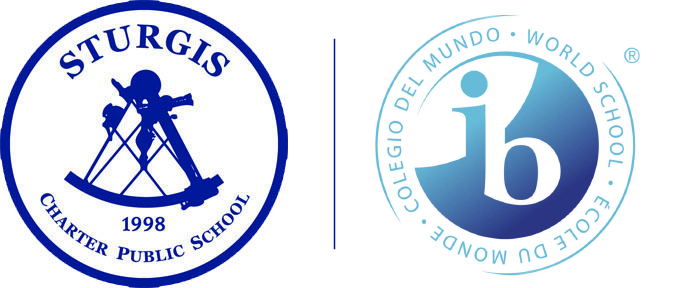East Summer Reading
Students entering grades 9-11 will select a book from the following Summer 2025 reading list.
The García sisters—Carla, Sandra, Yolanda, and Sofía—and their family must flee their home in the Dominican Republic after their father’s role in an attempt to overthrow brutal dictator Rafael Trujillo is discovered. They arrive in New York City in 1960 to a life far removed from their existence in the Caribbean. In the wondrous but not always welcoming U.S.A., their parents try to hold on to their old ways as the girls try to find new lives: by straightening their hair and wearing American fashions, and by forgetting their Spanish. For them, it is at once liberating and excruciating to be caught between the old world and the new. Here they tell their stories about being at home—and not at home—in America.
When Elwood Curtis, a black boy growing up in 1960s Tallahassee, is unfairly sentenced to a juvenile reformatory called the Nickel Academy, he finds himself trapped in a grotesque chamber of horrors. Elwood’s only salvation is his friendship with fellow “delinquent” Turner, which deepens despite Turner’s conviction that Elwood is hopelessly naïve, that the world is crooked, and that the only way to survive is to scheme and avoid trouble. As life at the Academy becomes ever more perilous, the tension between Elwood’s ideals and Turner’s skepticism leads to a decision whose repercussions will echo down the decades.
Os poemas sociais de Sentimento do mundo retornam em novo projeto, com posfácio de Ailton Krenak. Sentimento do mundo, publicado em 1940, quando Carlos Drummond de Andrade tinha 38 anos, é seu terceiro livro de poemas, mas o primeiro escrito após a mudança para o Rio de Janeiro, então capital do país.
Wynn and Jack have been best friends since college orientation, bonded by their shared love of mountains, books, and fishing. Wynn is a gentle giant, a Vermont kid never happier than when his feet are in the water. Jack is more rugged, raised on a ranch in Colorado where sleeping under the stars and cooking on a fire came as naturally to him as breathing. When they decide to canoe the Maskwa River in northern Canada, they anticipate long days of leisurely paddling and picking blueberries, and nights of stargazing and reading paperback Westerns. But a wildfire making its way across the forest adds unexpected urgency to the journey. One night, with the fire advancing, they hear a man and woman arguing on the fog-shrouded riverbank; the next day, a man appears on the river, paddling alone. Is this the same man they heard? And if he is, where is the woman? From this charged beginning, master storyteller Peter Heller unspools a headlong, heart-pounding story of desperate wilderness survival.
Night is Elie Wiesel’s masterpiece, a candid, horrific, and deeply poignant autobiographical account of his survival as a teenager in the Nazi death camps. This new translation by Marion Wiesel, Elie’s wife and frequent translator, presents this seminal memoir in the language and spirit truest to the author’s original intent. And in a substantive new preface, Elie reflects on the enduring importance of Night and his lifelong, passionate dedication to ensuring that the world never forgets man’s capacity for inhumanity to man.
Night offers much more than a litany of the daily terrors, everyday perversions, and rampant sadism at Auschwitz and Buchenwald; it also eloquently addresses many of the philosophical as well as personal questions implicit in any serious consideration of what the Holocaust was, what it meant, and what its legacy is and will be.
In a richly imagined, beautiful novel, an acclaimed writer gives an epic heroine her voice. In The Aeneid, Virgil’s hero fights to claim the king’s daughter, Lavinia, with whom he is destined to found an empire. Lavinia herself never speaks a word. Now, Ursula K. Le Guin gives Lavinia a voice in a novel that takes us to the half-wild world of ancient Italy, when Rome was a muddy village near seven hills.
Lavinia grows up knowing nothing but peace and freedom, until suitors come. Her mother wants her to marry handsome, ambitious Turnus. But omens and prophecies spoken by the sacred springs say she must marry a foreigner, that she will be the cause of a bitter war, and that her husband will not live long. When a fleet of Trojan ships sails up the Tiber, Lavinia decides to take her destiny into her own hands. And so she tells us what Virgil did not: the story of her life, and of the love of her life.
1985. Anita de Monte, a rising star in the art world, is found dead in New York City; her tragic death is the talk of the town. Until it isn’t. By 1998 Anita’s name has been all but forgotten―certainly by the time Raquel, a third-year art history student preparing her final thesis. On College Hill, surrounded by privileged students whose futures are already paved out for them, Raquel feels like an outsider. Students of color, like her, are the minority there, and the pressure to work twice as hard for the same opportunities is no secret.
But when Raquel becomes romantically involved with a well-connected older art student, she finds herself unexpectedly rising up the social ranks. As she attempts to straddle both worlds, she stumbles upon Anita’s story, raising questions about the dynamics of her own relationship, which eerily mirrors that of the forgotten artist.
Six minutes after takeoff, Flight 1421 crashes into the Pacific Ocean. During the evacuation, an engine explodes and the plane is flooded. Those still alive are forced to close the doors—but it’s too late. The plane sinks to the bottom with twelve passengers trapped inside. More than two hundred feet below the surface, engineer Will Kent and his eleven-year-old daughter Shannon are waist-deep in water and fighting for their lives.
Their only chance at survival is an elite rescue team on the surface led by professional diver Chris Kent—Shannon’s mother and Will’s soon-to-be ex-wife—who must work together with Will to find a way to save their daughter and rescue the passengers from the sealed airplane, which is now teetering on the edge of an undersea cliff.
Robert Langdon, Harvard professor of symbology, arrives at the ultramodern Guggenheim Museum Bilbao to attend the unveiling of a discovery that “will change the face of science forever.” The evening’s host is Edmond Kirsch, a forty-year-old billionaire and futurist, and one of Langdon’s first students.
But the meticulously orchestrated evening suddenly erupts into chaos, and Kirsch’s precious discovery teeters on the brink of being lost forever. Facing an imminent threat, Langdon is forced to flee. With him is Ambra Vidal, the elegant museum director who worked with Kirsch. They travel to Barcelona on a perilous quest to locate a cryptic password that will unlock Kirsch’s secret.
Over the last few decades, Americans have turned college admissions into a terrifying and occasionally devastating process, preceded by test prep, tutors, all sorts of stratagems, all kinds of rankings, and a conviction among too many young people that their futures will be determined and their worth established by which schools say yes and which say no.
In Where You Go is Not Who You’ll Be, Frank Bruni explains why this mindset is wrong, giving students and their parents a new perspective on this brutal, deeply flawed competition and a path out of the anxiety that it provokes.
There are around 6000 people in the world today who owe their lives to Nicholas Winton. They are the descendants of a group of refugee children rescued by him from the Nazi threat in 1939. Some of them know of his existence and the part he played in their history, many others do not. It was a short event in his life but a critical one for those whose lives were saved. For him that intervention was over in a flash and other adventures supplanted it. Only much later did this episode re-emerge in his life and ever since has brought him visitors from all over the world anxious to learn his story. This book lays out that story in detail, exploring the motivation and early experiences that led to him acting to save young lives, while others looked the other way.
Frequently Asked Questions
Students should have plenty of options for obtaining their books over the summer. Our librarian has ensured there are copies of each title on the list at several CLAMS libraries across the Cape. There is also an option to sign up for Libby, where students can rent e-books and audiobooks.
Register for a CLAMS library card
During one of the first advisory meetings of our 2025-2026 academic year, students in grades 9 through 11 will discuss their summer reading while Sturgis faculty and staff advisors help facilitate a discussion in each group. There is no assessment connected to each advisory discussion although English teachers will have students complete a diagnostic about their summer reading choice through an in-class written response.
This year, there is no sign-up form. Students are expected to self-select and come to school in the fall having read the book. They should come prepared for discussion and any diagnostic assignments related to the book.
- See information for Incoming Students
- Register for a CLAMS card
- See Summer Reading Letter to Sturgis Parents and Families


